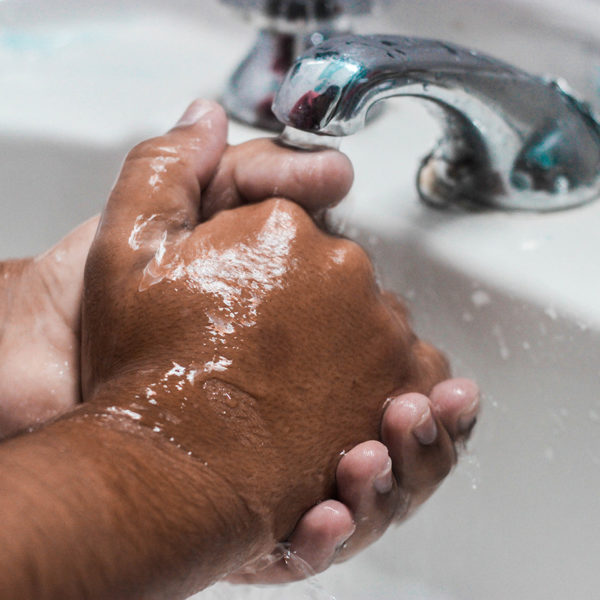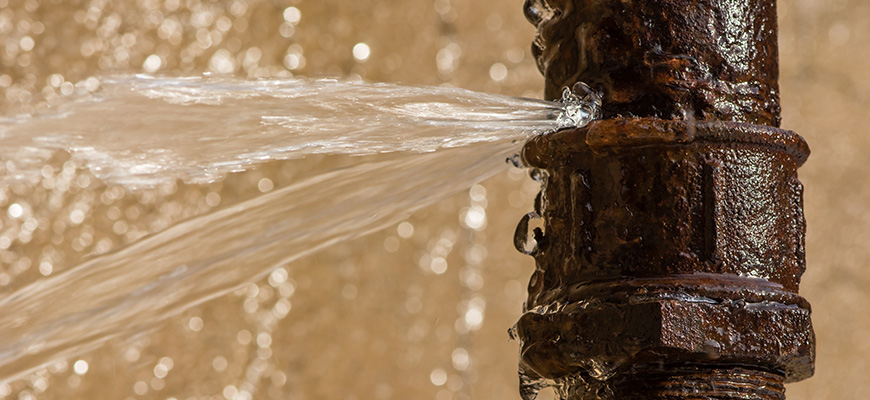Are you tired of dealing with sluggish drains and clogged sink fixtures? If so, you’re not alone. Many homeowners face the frustrating issue of sediment buildup in their pipes, leading to a variety of symptoms including slow drainage and foul odors. In this article, we will unravel the connection between clogged sink fixtures and sediment buildup, and explore the most effective solutions to this common plumbing problem.
Common Symptoms of Clogged Sink Fixtures
When it comes to maintaining the functionality of your plumbing system, understanding the root cause of clogged sink fixtures is key. Sediment buildup occurs over time as minerals, debris, and other particles accumulate within the pipes, inhibiting water flow and causing blockages. This can be particularly problematic in areas with hard water, where mineral deposits tend to form more quickly.
One of the most common symptoms of clogged sink fixtures is slow drainage. If you notice that the water takes longer than usual to drain from your sink, it could be a sign that there is sediment buildup in your pipes. Additionally, you may experience gurgling sounds coming from the drain, which indicate that air is trapped in the pipes due to blockage. Foul odors emanating from your sink can also be a telltale sign of clogged fixtures, as stagnant water and debris create a breeding ground for bacteria and mold.
Understanding the symptoms of clogged sink fixtures is crucial in order to address the issue promptly. Ignoring these signs can lead to more severe plumbing problems, such as burst pipes or sewage backups. It’s important to take action as soon as you notice any of these symptoms to prevent further damage and inconvenience.
Understanding Sediment Buildup in Pipes
To effectively tackle the problem of clogged sink fixtures, it’s essential to understand how sediment buildup occurs in pipes. As water flows through the plumbing system, it carries various minerals and debris along with it. Over time, these particles can settle and accumulate on the inner walls of the pipes, narrowing the diameter and restricting water flow.
In areas with hard water, the problem of sediment buildup is exacerbated. Hard water contains high levels of minerals, such as calcium and magnesium, which precipitate out of the water and form deposits on surfaces. These mineral deposits, also known as limescale, can build up rapidly and cause significant blockages in the plumbing system.
The connection between clogged sink fixtures and sediment buildup lies in the fact that the fixtures themselves can become a trap for debris and mineral deposits. As water flows through the sink, it can leave behind small particles that eventually accumulate and lead to clogs. This is especially true for sinks with built-in drains or garbage disposals, as these areas provide a prime location for debris to accumulate.
The Impact of Sediment Buildup on Plumbing Systems
The presence of sediment buildup in your pipes can have a detrimental impact on your entire plumbing system. As the diameter of the pipes narrows due to the accumulation of debris and mineral deposits, water flow becomes restricted. This leads to slower drainage and can result in backups and overflows.
In addition to impeding water flow, sediment buildup can also affect the quality of your water. As minerals and debris accumulate, they can alter the taste and odor of the water. The buildup of bacteria and mold in clogged fixtures can further contaminate the water supply, posing health risks to you and your family.
Furthermore, the pressure within the plumbing system can be negatively affected by sediment buildup. The narrowing of the pipes increases the resistance to water flow, causing a drop in water pressure throughout the house. This can be particularly noticeable when using multiple fixtures simultaneously, as the reduced pressure may result in weak water streams or inadequate flushing.
Preventing Clogged Sink Fixtures and Sediment Buildup
Prevention is key when it comes to avoiding clogged sink fixtures and sediment buildup in your pipes. By taking proactive measures, you can significantly reduce the likelihood of encountering these plumbing problems. Here are some preventive steps you can take:
- Install a water softener: If you live in an area with hard water, consider installing a water softener system. This device works by removing the excess minerals from the water, preventing the formation of limescale and reducing the risk of sediment buildup in your pipes.
- Use drain guards: To prevent debris from entering your sink drains, install drain guards or screens. These inexpensive devices can catch hair, food particles, and other debris, preventing them from reaching the pipes and causing clogs.
- Avoid pouring grease down the drain: Grease and fat can solidify and adhere to the inside of the pipes, creating a sticky surface that traps debris and leads to clogs. Instead of pouring grease down the drain, let it solidify and dispose of it in the trash.
- Regularly clean your sink fixtures: Take the time to clean your sink fixtures regularly to remove any built-up debris or mineral deposits. Use a non-abrasive cleaner and a soft cloth to gently scrub the surfaces. This will help maintain proper water flow and prevent clogs.
DIY Solutions for Unclogging Sink Fixtures and Removing Sediment
If you’re already dealing with clogged sink fixtures and sediment buildup, there are several do-it-yourself solutions you can try before calling a professional plumber. These methods can help unclog your sinks and remove the accumulated sediment. Keep in mind that these remedies may not work for severe or persistent clogs, in which case professional assistance may be necessary. Here are some DIY solutions to consider:
- Boiling water: Boiling water can be an effective and simple way to unclog sink fixtures. Carefully pour a pot of boiling water down the drain, allowing it to work its way through the pipes and break up any clogs. Repeat this process a few times if necessary.
- Baking soda and vinegar: This classic household remedy can help dissolve clogs and remove sediment. Start by pouring a cup of baking soda down the drain, followed by a cup of white vinegar. Let the mixture fizz for a few minutes, then rinse with hot water. Repeat as needed.
- Plunger: A plunger can be a useful tool for unclogging sink fixtures. Ensure that you have a tight seal between the plunger and the drain, then vigorously plunge up and down to dislodge the clog. This method works best for minor blockages.
- Plumbing snake: For more stubborn clogs, a plumbing snake can be used to physically remove the debris from the pipes. Insert the snake into the drain and rotate it while pushing it further into the pipes. Once you encounter resistance, gently pull back to dislodge the clog.
When to Call a Professional Plumber for Help
While DIY solutions can be effective for minor clogs, there are situations where it’s best to call a professional plumber for assistance. If you’ve tried multiple methods and the clog persists, or if you suspect a more significant issue with your plumbing system, it’s time to seek professional help. Here are some signs that indicate the need for a plumber:
- Multiple fixtures are clogged: If you notice that multiple sinks or drains in your home are experiencing slow drainage or clogs, it could be an indication of a more extensive problem within the plumbing system. A professional plumber will be able to identify and address the underlying issue.
- Foul odors persist: Lingering foul odors despite attempts to clean the sink fixtures may indicate a more severe problem, such as a sewer line issue or a damaged plumbing vent. A plumber can assess the situation and provide the appropriate solution.
- Water backups or sewage leaks: If you experience water backups or sewage leaks, it’s crucial to contact a plumber immediately. These issues can indicate a serious blockage or a malfunctioning sewer line that requires professional attention.
- Persistent low water pressure: If you consistently experience low water pressure throughout your home, it could be a sign of sediment buildup or a more significant issue within the plumbing system. A plumber can diagnose and resolve the problem to restore proper water pressure.
Maintenance Tips to Prevent Future Clogs and Sediment Buildup
Once you’ve resolved the issue of clogged sink fixtures and sediment buildup, it’s essential to implement regular maintenance practices to prevent future problems. Here are some maintenance tips to keep your plumbing system running smoothly:
- Regularly clean your sink fixtures: As mentioned earlier, regular cleaning of your sink fixtures can prevent the accumulation of debris and mineral deposits. Make it a habit to clean the surfaces using a non-abrasive cleaner and a soft cloth.
- Flush drains with hot water: Periodically flushing your drains with hot water can help dissolve any minor clogs and remove loose debris. Simply pour a pot of boiling water down the drain and repeat this process every few weeks.
- Use enzymatic drain cleaners: Enzymatic drain cleaners are a safe and effective option for maintaining clear drains. These cleaners use natural enzymes to break down organic matter, preventing the formation of clogs. Follow the instructions on the product label for best results.
- Schedule regular plumbing inspections: Consider scheduling annual or biennial plumbing inspections with a professional plumber. They can assess the condition of your plumbing system, identify potential issues, and provide recommendations for preventive maintenance.
Conclusion: Taking Care of Your Sink Fixtures and Plumbing System
Clogged sink fixtures and sediment buildup in pipes can be a frustrating and inconvenient problem for homeowners. By understanding the connection between these issues and taking proactive measures, you can prevent future clogs and ensure the smooth functioning of your plumbing system.
Remember to be vigilant about the symptoms of clogged sink fixtures, such as slow drainage and foul odors, and take action promptly. Implement preventive measures, such as installing a water softener and using drain guards, to reduce the risk of sediment buildup. If you encounter persistent or severe clogs, don’t hesitate to seek professional help from a plumber.
Regular maintenance, including cleaning sink fixtures and flushing drains with hot water, can go a long way in preventing future clogs and maintaining the overall health of your plumbing system. By following these tips and staying proactive, you can say goodbye to sluggish drains and hello to uninterrupted water flow in your sinks.
Click to Learn More


